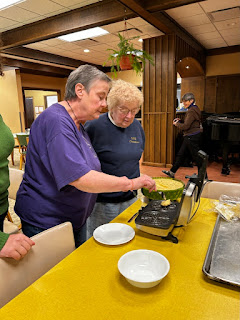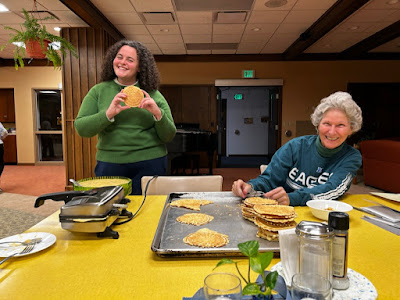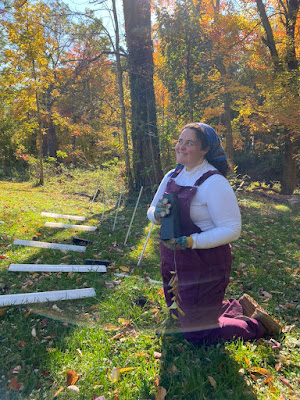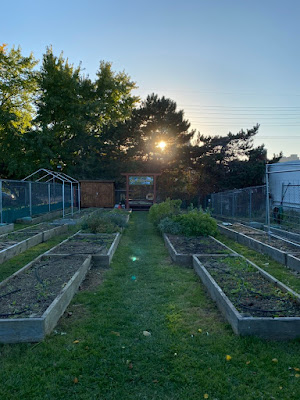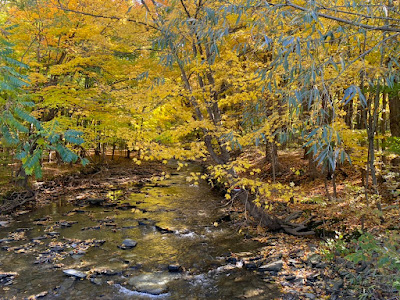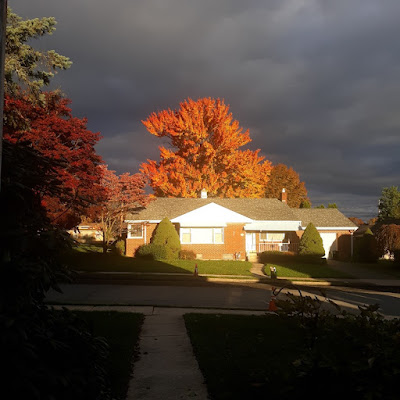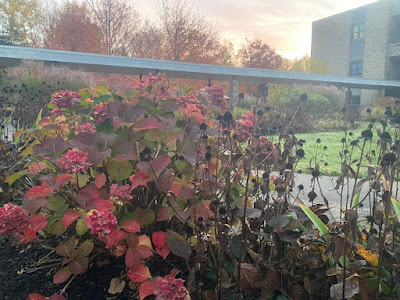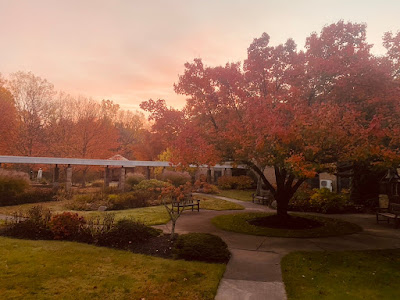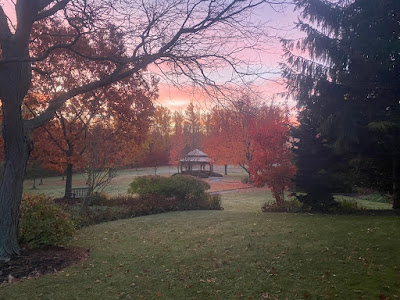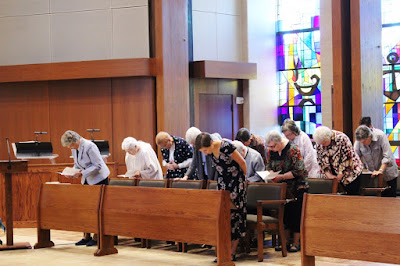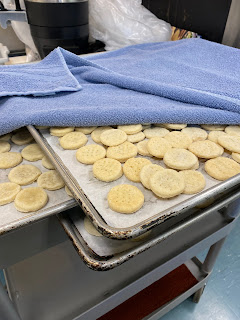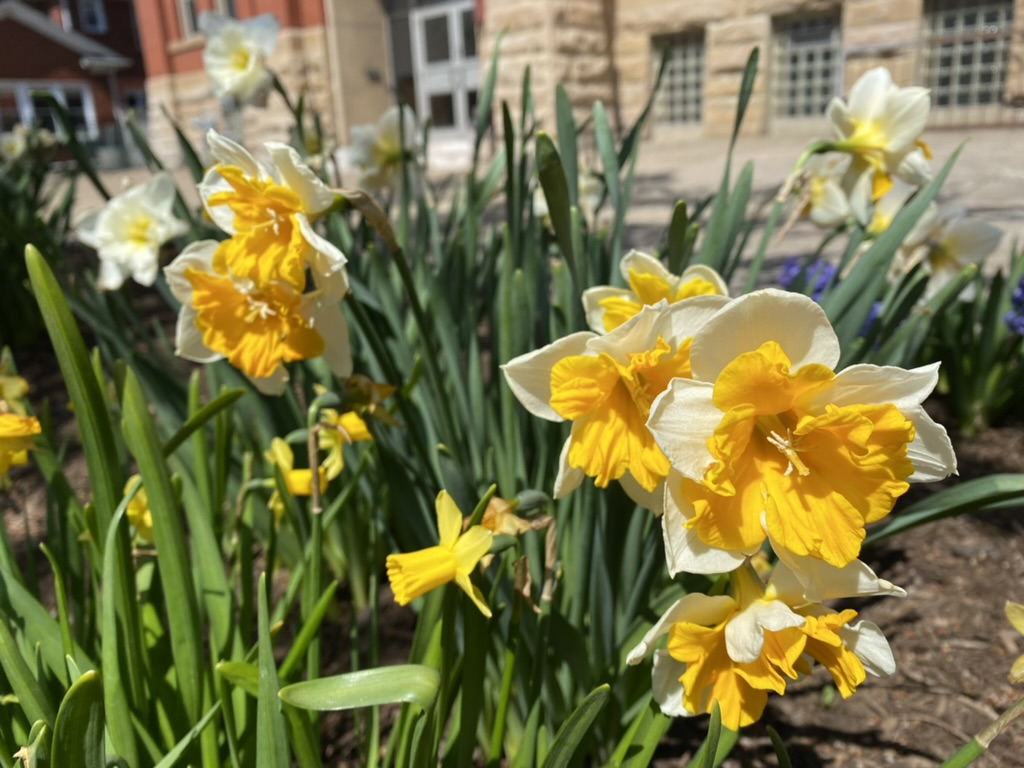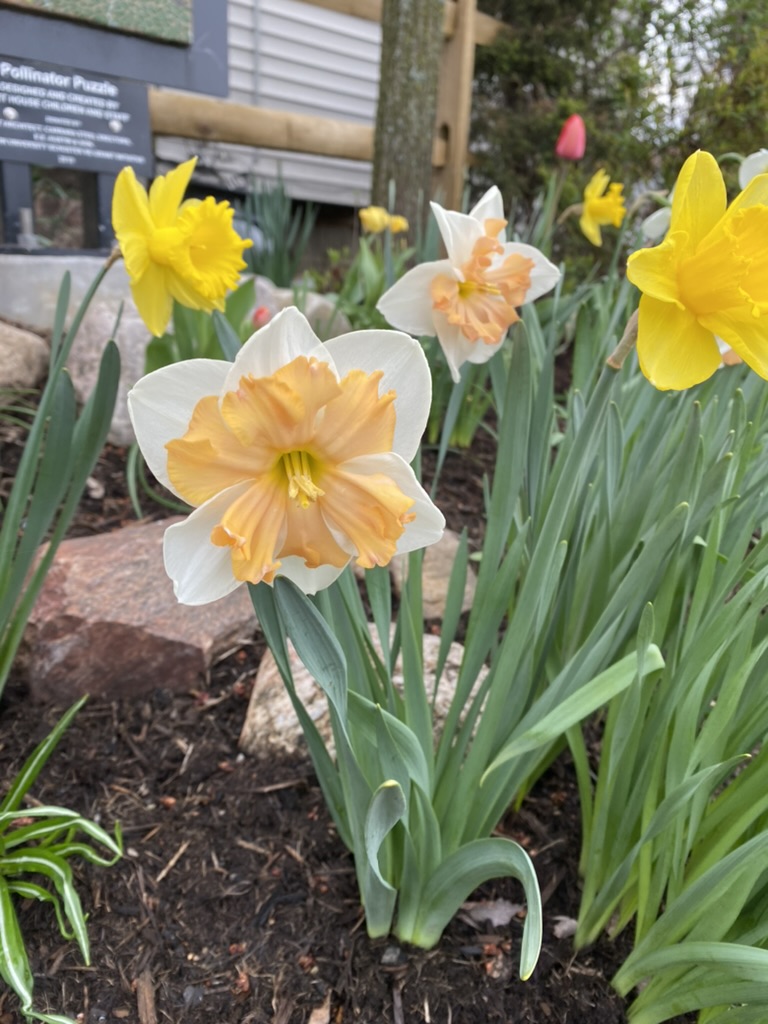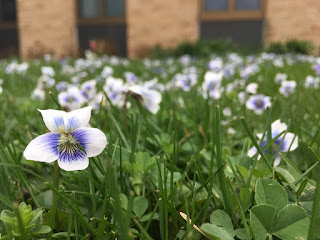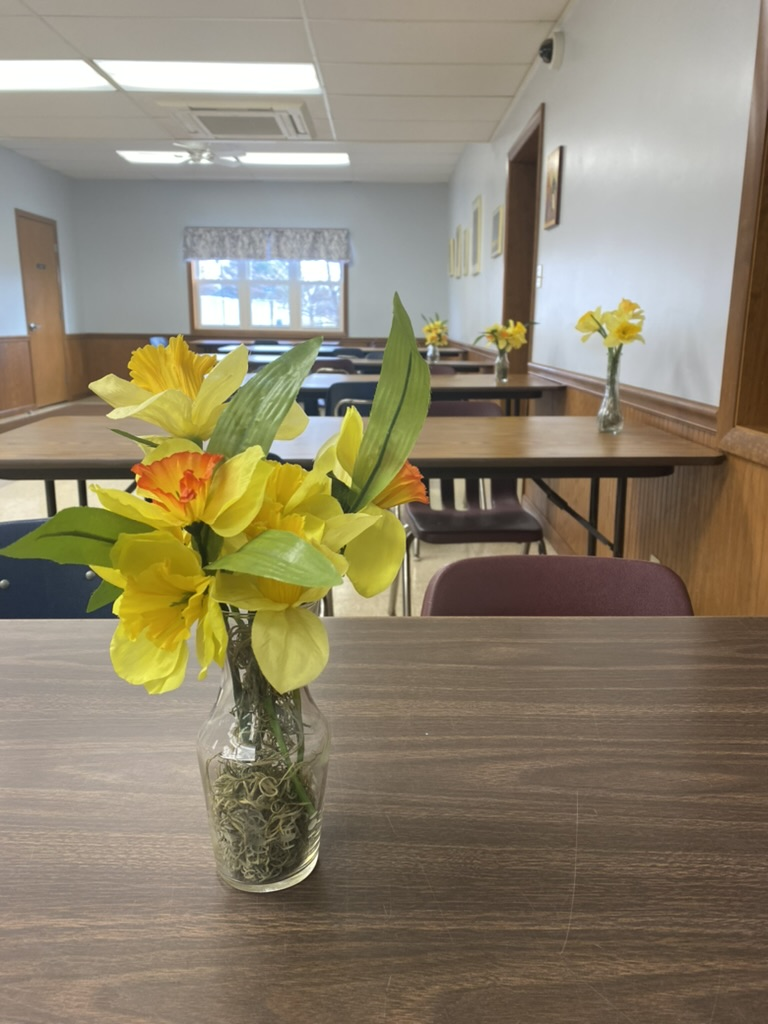These are reflections I shared at Liturgy this morning, based on today's Lectionary.
II Maccabees 7:1-2, 9-14
Luke 20:27-38_____________________________
You know, if I had chosen readings to reflect on, I wouldn’t have chosen these.
I might have chosen Mary and Martha, or the Prodigal Son, or, any number of other biblical stories.
BUT…
That’s what you get for saying “Yes” without looking at the readings first!
And, isn’t that how life is anyway? We wake up in the morning; we say “Yes” to a new day, and then… the experiences that present themselves are rarely the ones we’d choose for ourselves, or the ones we’d imagine having.
So often the life that comes our way is challenging, mysterious, unexpected.
But it’s our life, and we’ve chosen to say “Yes,” so we have to do something with it.
So we do our best to dive in, to grapple with it, to live.
And once we dive in and grapple with these readings, there’s much to glean about our attitudes, our choices, and our way of moving through the world.
“There is another world, but it is in this one.”
I read this quote in a book recommended to me about the possibility of creating utopias here and now.
In the story from the Maccabees, there is another world for rulers who scourge those who live by their convictions, and we experience it in the pained, yet strong mother and her faith-filled sons.
In Luke’s Gospel, there is another world for those so concerned about distinctions and black and white answers that they cannot fully live, and we experience it in burning bushes and resurrections.
But inhabiting that latter world involves a choice. And it’s a hard choice. Because we are anxious, because we want clarity and not complexity, because we aren’t willing to let go of our grasp on the way things “should be,” because the work, both inner and outer, required to live in that other world demands too much of us, and asks us to change in a way that feels too far a stretch for us.
Yet, still, we hear the call to that world each morning. And we have to choose daily, and even in each moment, which world we not only inhabit, but also create.
We know from our own experiences, and now from these Scripture stories, that it is our experience of the Divine that takes us into that other world; it is our experience with the suffering and those on the margins that takes us into that other world; it is our experience of hardships and the inherent messiness of being alive that open us up to that other world. Does the Divine scourge? Does the Divine want black and white?
We know another world is possible. We have experienced it—the one of the mother and her sons, the world where what we eat does not matter as much as making sure those around us are not starving while we ourselves feast. We can create it right now.
We know another world is possible. We have experienced it—the one where our belief in life eternal unites us, the world where our true marriage is to the oneness that connects us all. We can create it right now.
But, to live in that world, we also have to choose a different narrator. The narrator cannot be those in power; it cannot be the capitalist economy; it cannot be the oppressor. We have to hear another perspective.
Come to the soup kitchen and listen to any hungry guest. Go to the shoreline and watch the water rise inch by inch. Take a walk through the poverty of any town or city. Unite yourself with the pain of the world.
Let your world be turned upside down by this new perspective. Welcome it with an open and compassionate heart and a robust humility. Welcome it with a desire for change, a desire to create a new world.
Because there is another world, but it is in this one.
It’s why we come to this chapel, to be together and to strengthen our communal resolve to choose to live in and create that other world, here and now—the one we know is so available to us when we hear another perspective.
That’s the outer world—our relationships with each other and with the earth itself. And how about my inner world? What about my relationship with myself?
What happens when I choose to narrate my own story rather than let someone else do it? What other world emerges? The woman and her sons do not allow the ruler to narrate their story. Jesus does not allow the Sadducees to narrate his. And it’s not only that I narrate my own story, but it’s the attitude with which I narrate it. Do I narrate my story through the world of my jealousies, my grudges, my desire for control and easy answers? Or, do I narrate my life through my experience of the Divine? Is my story one of abundance, of gratitude, of concern for others?
The former is so much easier than the latter, so much more comfortable, so much more seemingly secure. But, we know the former world is passing away. As we move closer and closer to Advent, the choice becomes more and more clear and more and more necessary. Christ is coming. Let go of the world you knew. Say to yourself, “I am the light of the world. I am the light of the world. I am the light of the world.” Believe it. Become it.
The possibility of this Christ-centered world comes in each moment, and there is a deep call from God to choose it.
And its name is simple. It’s love.
_____________________________
Let us walk in the holy presence.
a new day begins at the monastery



